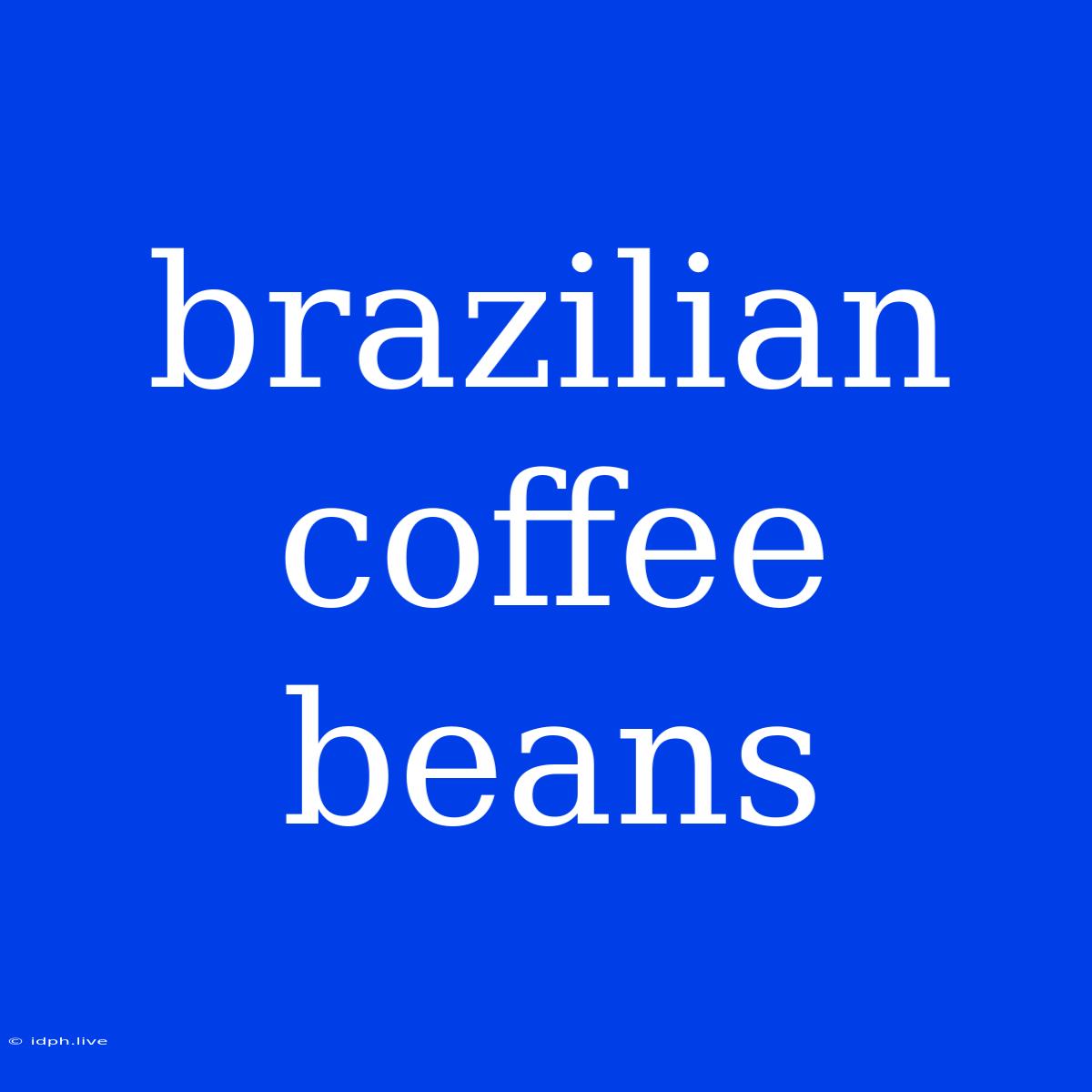Brazilian Coffee Beans: A Guide to the World's Largest Producer
Brazil is synonymous with coffee. It's the world's largest coffee producer, and its beans are renowned for their quality and unique characteristics. But what makes Brazilian coffee so special? Let's delve into the world of Brazilian coffee beans, exploring their varieties, flavors, and the factors that contribute to their exceptional reputation.
A Diverse Landscape, A Spectrum of Flavors
Brazil's vast coffee-growing regions, stretching from the Amazon rainforest to the southeastern highlands, offer a diverse range of climates and altitudes. This geographic diversity results in a wide spectrum of coffee varieties and flavors.
Some of the most popular Brazilian coffee varieties include:
- Arabica: This is the most widely grown variety in Brazil, accounting for about 90% of its production. Arabica beans are known for their smooth, balanced flavor with notes of chocolate, nuts, and caramel.
- Robusta: While less common than Arabica, Robusta beans are grown in certain regions and offer a bolder, more bitter flavor with a higher caffeine content.
Regions and Their Characteristic Flavors:
- Cerrado: Known for its high-quality Arabica beans, the Cerrado region in central Brazil produces coffees with a clean, sweet profile, often showcasing notes of chocolate, caramel, and nuts.
- Minas Gerais: This region is famous for its "MG" coffees, which are generally characterized by a balanced cup with a smooth body and subtle acidity.
- São Paulo: One of the oldest coffee-producing regions in Brazil, São Paulo is known for its diverse range of coffees, from classic smooth and balanced to more complex and nuanced offerings.
- Espírito Santo: This region produces coffees with a bright acidity and fruity notes, making them a popular choice for specialty roasters.
Cultivating Quality: From Bean to Cup
Brazilian coffee farmers have a long history of sustainable practices and a commitment to quality.
Factors contributing to the quality of Brazilian coffee:
- Climate: Brazil's tropical climate with distinct wet and dry seasons provides ideal conditions for coffee cultivation.
- Altitude: High-altitude farms typically produce beans with a more balanced flavor and higher acidity.
- Soil: The diverse soils of Brazil contribute to the unique characteristics of coffees from different regions.
- Processing: Brazilian coffee farmers are known for their expertise in processing methods, such as wet and dry processing, which influence the final flavor profile.
Enjoying Brazilian Coffee
Whether you prefer a smooth and balanced cup or a bold and robust brew, Brazilian coffee offers something for every taste. From classic blends to single-origin coffees, Brazilian beans are a cornerstone of the global coffee market.
Here are some ways to enjoy Brazilian coffee:
- Brewed coffee: Brazilian beans are perfect for various brewing methods, from drip coffee to French press and pour-over.
- Espresso: The balanced acidity and smooth body of many Brazilian coffees make them ideal for espresso-based drinks like cappuccinos and lattes.
- Cold brew: For a refreshing and smooth coffee experience, try cold brewing Brazilian coffee beans.
Explore the world of Brazilian coffee and discover the unique flavors and aromas that have captivated coffee lovers for generations.

